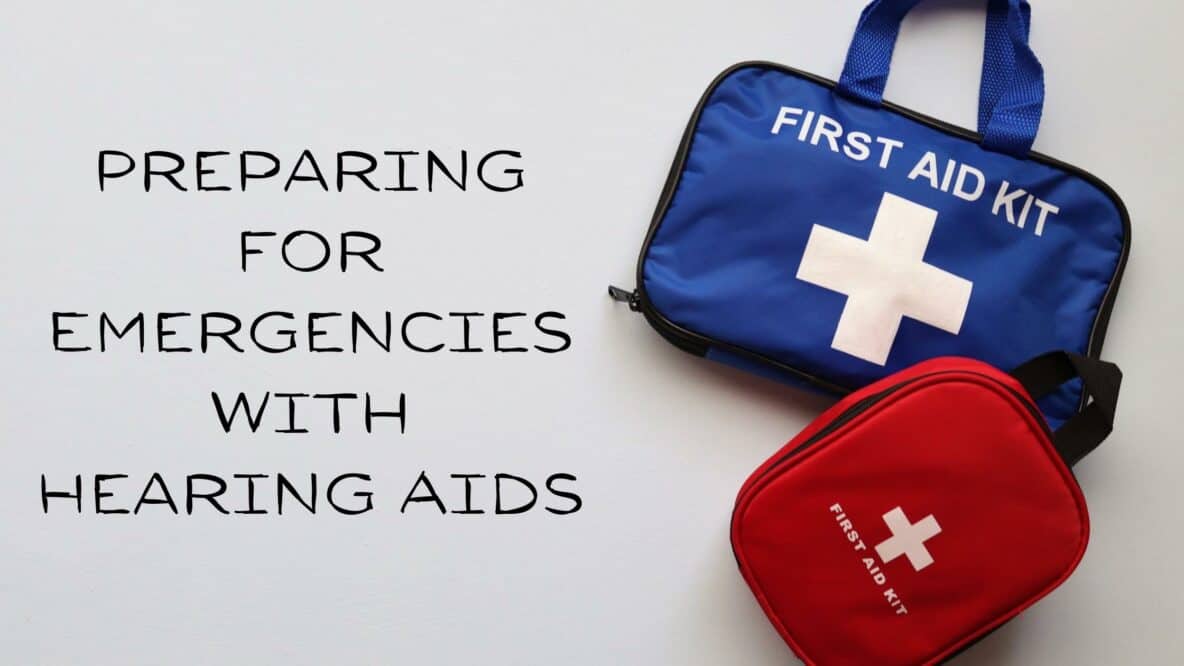We are used to weather emergencies such as floods, severe storms, blizzards, tornadoes, power outages and more. Sometimes the emergency comes in the form of a fire or collapsed bridge. You never know what might happen but it’s always best to be prepared for most situations. Especially for those of us with hearing loss, being prepared can save us a lot of stress and confusion. For those of us who use hearing aids, there are a few more things to consider.
Non-Audio Alarms
The longer we have to prepare for anything that could go wrong the more of a chance we have of escaping unscathed. For instance, a fire alarm or weather advisory helps people know a possible catastrophe is happening so they can start to prepare. For many of us who live with hearing loss, we need extra support. For one thing audio alerts are easy to miss, especially some fire alarms which alert at a high frequency the majority of people with hearing loss struggle to hear. Make sure all your alerts in your home have visual or vibration settings available as well. Flashing lights or setting vibrating alarms to rock your bed can make sure you are awake and just as prepared as everyone else.
Register for Available Emergency Alert Systems
It’s a good idea to subscribe to all the emergency alert systems out there in order to be prepared. The majority of alerts are sent via text message. Make sure that you have your phone with you and that it is always set to vibrate. That way you have a better chance of getting all the warnings you may need. For a list of some national alert systems and to sign up, visit: https://www.ready.gov/alerts.
Have A Backup Communication System Handy
It’s always a good idea to pack an emergency kit full of an emergency blanket, protein bars, water, first aid and important documents. However, for people who use hearing aids a few more things should be added. For instance, it’s also a good idea to have a waterproof container to protect your hearing aids and electronics in case the emergency includes water. You can even go as far as packing a backup assistive listening device in your emergency bag. While these are not as nuanced as hearing aids, they will help you in a pinch.
If your hearing loss is more profound, make sure you have a pen and paper handy for written communication if all else fails!
Keep Extra Batteries with You
You should always have extra batteries packed to make sure your devices have enough power to get you through whatever emergency comes your way. If your hearing aids use a rechargeable battery make sure to pack a spare one in your emergency bag. The Hearing Health Foundation (HHF) recommends that hearing aid users keep an entire month’s worth of hearing aid batteries in their emergency kits.
Make a Plan
You can’t plan for everything, but you certainly can try! Make an escape route for possible emergencies that could occur. Heavy, intense rainfall can occur suddenly, and the quickly rising floods caused by this in the minutes or hours after the rainfall cause flash floods. Since this is likely in this region it’s a good idea to make a plan. Make an escape route in case a flood comes. Find the highest point in your home and wait there. It’s never a good idea to try to navigate through a flood. In case of fire, it is also a good idea to map out all the escape routes in your home. However, it’s always easier to navigate an emergency with someone else. Talk to your neighbors and make emergency plans with them.
Emergency Contact List
As HHF states, “the buddy system is not just for toddlers”. In case of emergency, have 2-3 people in state and 1 person out-of-state that will be looking out for you and making sure you are in a safe place. Emergencies often can take out cell towers and the internet so it’s a good idea to check in as soon as you know an emergency is heading your way and evacuate before it can get to you. To find out more tips on preparing for an emergency and to stock up on emergency hearing supplies, contact us today.

